Château d'Esclans 3 L.
 A.O.C. Côtes de Provence, France.
A.O.C. Côtes de Provence, France.![]() Grenache Tintorera and Cinsault.
Grenache Tintorera and Cinsault.![]() Rosé wine Jéroboam Bottle-Double Magnum, 3 L.
Rosé wine Jéroboam Bottle-Double Magnum, 3 L.
 EUR, Final price!
EUR, Final price! Delivery
Delivery  November Wednesday 27 - Thursday 28
November Wednesday 27 - Thursday 28 FREE SHIPPING!
FREE SHIPPING!| Producer | Château d'Esclans. |
| Variety |
|
| Country of origin |
 France. France.
|
| Appellation of origin |
 A.O.C. Côtes de Provence. A.O.C. Côtes de Provence.
|
| (UE)401/2010 Certification |
Appellation d'Origine Contrôlée (A.O.C.) A.O.C. Côtes de Provence. |
| Production region | The production region of A.O.C. Côtes de Provence is located in La región de Provence. |
| Weight | 4.000 gr. (4,0 Kg.). |
| EAN | 3760167974732 |
| Typology |
Rosé wine. A.O.C. Côtes de Provence. |
| Variety |
|
| Vintage / Harvest |
Currently marketed by the producer.
|
| Format | Jéroboam Bottle-Double Magnum. |
| Capacity | 3 L. |
| Alcohol content | 12.5% Vol. |
| Weight | 4.000 gr. (4,0 Kg.). |
| Special Format | Magnum Bottle. |
| Product reference | WAN4510064 |
| EAN | 3760167974732 |
| Actual price | 173,95 € |
| Minimum order quantity | 1 Unit. |
| Shipping deadline |
 Spain: Free Shipping. Spain: Free Shipping. Delivery term: Information and prices. |
| Storage position | Lateral position, horizontal bottle. |
| Storage temperature |
Store at a constant temperature between 10-17ºC. Humidity should be constant around 60-80%. |
| Recommendations | Keep preferably away from light. |
| Visual tasting note | Crystalline, Evolution to tile color, Sparkling. |
| Olfactory tasting note | Tender almonds, Raspberry marmalade, Vanillas. |
| Tasting note | Dry, Very silky, Some warmth. |
| Recommended pairing | Rice with mushrooms, Nuts, Pisto manchego, Spaghetti carbonara. |
| Consumption temperature | 4ºC - 10ºC. |
| Consumption | It is recommended to drink in moderation and demonstrate a responsible consumption of alcoholic beverages. |
| Please keep in mind |
The information provided and referred to the product features and details has been provided by the expert, manufacturer or producer or published on the official sites. In no case can it be considered as assessment made by our team, unless expressly stated otherwise. We suggest you to refer to the comments and reviews posted by our customers and users to expand and contrast this information. |
| Misreading |
Our team provides this information and details in ESPAÑOL language. If you browse in another language note that the information contained may have been translated from the original language through an automated real-time process that has not been supervised by our human team. In case of doubt, misunderstanding or misreading about the content of this information you should refer to the original version of this page or contact our customer service team. |
| Product image |
The product image or its label is only relevant for graphic purposes, so it may not match the identification of the vintage or other features and details of the product for sale. This product is provided in the conditions and format in which it is marketed at the current time. This product is not identified or supplied in a specific vintage. The product image and label may not match the vintage identification or other characteristics and details of the product for sale. |
| Legal Notice |
It is against the law to sell or supply alcohol to, or to obtain alcohol on behalf of a person under the age of 18 years. If you are not more than 18 years old, you must leave this website. |
Selection by «Message in a Bottle®»
Red Wine. Premium Edition MBS Reserva. Customizable label.
No customer reviews at this time. Be the first to post a review!
Product Selection by Château d'Esclans.
11 Products, The best selection by Château d'Esclans.
Château d'Esclans 3 L.
Additional information.

|
«Château d'Esclans Côtes de Provence» is produced by Château d'Esclans. In the elaboration of «Château d'Esclans Côtes de Provence» the grape varieties that are used are Grenache Tintorera and Cinsault. «Château d'Esclans Côtes de Provence» is a product from France. It is certified with A.O.C. Côtes de Provence. The production region of A.O.C. Côtes de Provence is located in La región de Provence. The weight of «Château d'Esclans Côtes de Provence» is 4.000 grams (4,0 Kg.). «Château d'Esclans Côtes de Provence» is identified and marketed with the barcode EAN 3760167974732. |
Variety:
Grenache Tintorera and Cinsault.
Château d'Esclans 3 L.
Variety Grenache Tintorera.
See Grenache Tintorera Rosé wine list.
 Español [ ES ]
Español [ ES ]Origen.
Esta uva fue cultivada por primera vez en Francia, en el año 1866, donde había sido creada diez años antes por Henri Bouschet, al cruzar las variedades petit bouschet y garnacha, la primera de ellas ya había sido creado por su padre, Louis Bouschet. El resultado de ese cruce fue una uva muy intensa en su color, con mças calidad que la teinturier du Cher. Al ser una uva con muy buen rendimiento, y un mantenimiento fácil, ganó popularidad entre los productores de vino franceses, especialmente en los años que siguieron a la epidemia de filoxera. A finales del siglo XIX había plantaciones de garnacha tintorera en Bordeaux, Borgoña, el Valle del Loira y en Alentejo (Portugal). La uva fue ampliamente conocida en los Estados Unidos durante los años de la Ley Seca. Los agricultores californianos del Valle Central descubrieron que su pulpa era tan carnosa y jugosa que se podía fermentar su zumo hasta en el tercer prensado, mucho más productiva que otras uvas como la chardonnay y la merlot, que normalmente sólo incluyen el jugo del primer o segundo prensado.
Características.
La garnacha tintorera se desarrolla en cepas vigorosas, de porte tumbado, con buena fertilidad aunque una producción escasa. Su desborre es de media estación y madura precozmente, así como su agostamiento. Los racimos son de tamaño medio, con uvas uniformes en tamaño, pero no en color, poco compactos, con raquis, pedúnculos y rodetes pigmentados. Las uvas son medianas, esféricas, color azul oscuro, casi negro, con cicatriz estilar muy presente, hollejo grueso y recubierto de mucha pruina. La pulpa, de sabor neutro, es compacta, carnosa y jugosa, con mucha pigmentación. Es una variedad sensible al mildiu y a la excoriosis, y en menor medida a la necrosis bacteriana, eutipiosos, la yesca y demás enfermedades fúngicas de la madera. Es atacada por la polilla del racimo, los cicadélidos y la podredumbre ácida. El oídio, la botritis y los ácaros no le afectan demasiado, así como la sequía, pero su producción es mucho mejor cuando tiene una suficiente humedad, pues requiere altos niveles hídricos. Gusta de suelos profundos y es sensible a los fríos de la primavera, aunque se comporta bien ante las bajas temperaturas del invierno. En España se cultiva en pocos lugares. Se encuentra en el interior de la provincia de Alicante y este de Albacete, en el Corredor de Almansa e interior de Galicia.
Vinos.
La garnacha tintorera da vinos muy intensos, por lo que no se suele vinificar sola, sino que se utiliza para aportar color a la mezcla con tintos de zonas frías, que tienen menos grados y color. Esta variedad es rica en polifenoles (beneficiosos para la salud). Su vino envejece bien, tiene acidez media armonizada con aromas a frutos negros. Hasta hace unos años no había vinos monovarietales de tintorera; ahora los amantes del vino muestran más interés por la Garnacha, está de moda. Sus vinos raciales e intensos hacen que esta variedad esté muy bien considerada en la cultura vinícola, pues da mostos intensamente coloreados, con graduación elevada, muy tánicos y ásperos, con equilibrada acidez. Los vinos de tintorera son muy densos, alcohólicos, coloreados y con intensos aromas a frutas rojas.
Rosé wine Grenache Tintorera
Product Selection Rosé wine Grenache Tintorera.
Château d'Esclans 3 L.
Variety Cinsault.
See Cinsault Rosé wine list.
 Español [ ES ]
Español [ ES ]Origen.
La cinsaut o cinsault es una uva tinta importante en la región francesa de Languedoc-Rosellón y en las antiguas colonias francesas de Argelia y Marruecos. Se mezcla a menudo con uvas como la garnacha y la cariñena para añadirle a los vinos suavidad y buqué. Tiene algunos sinónimos, de los cuales el más se presta a la confusión es el de oeillade, aunque es diferente de la oeillade original, que ya no se cultiva. En Sudáfrica era conocida como hermitage, de ahí que el cruce con cinsault y pinot noir se conoce como pinotage, su cruce más famoso. La cinsault parece ser una variedad antigua que puede haberse originado en Hérault, pero podría haber sido traída por comerciantes del Mediterráneo Oriental.
Características.
La vid de variedad cinsault puede producir cosechas abundantes, pero los vinos son mucho mejores si se controlan los rendimientos. La cinsaut es muy resistente a la sequía, pero puede ser susceptible a enfermedades, de modo que aprecia un clima seco. Produce racimos grandes y cilíndricos de uvas oscuras con pieles gruesas.
Cultivo.
La cinsault es la cuarta uva tinta más plantada de Francia, y es especialmente importante en la región de Languedoc-Rosellón. También es usada ampliamente para hacer vinos rosados en la Provenza. En Argelia, debido a su gran resistencia a la sequía se usa para hacer grandes volúmenes de vino así como en Marruecos y Túnez. En Australia crece bajo una gran variedad de nombres, como black prince, blue imperial, oeillade y ulliade. En Chile se le conoce como cinsault o cargadora, dada la abundancia de racimos. En total Chile cuenta con más de 796 hectáreas plantadas de cinsault, de las cuales casi 700 se concentran en el Valle del Itata, en las zonas de Coelemu, Guarilihue y Portezuelo. Actualmente en otras zonas vitivinícolas como el Valle de Colchagua y Villarrica, se han iniciado nuevas plantaciones. En Italia se la conoce como ottavianello. Hay una pequeña Denominazione di Origine Controllata (DOC) dedicada a la cinsaut, la Ottavianello di Ostu, con una producción de menos de 100 cajas al año. En cualquier caso, la cinsault es muy usda en las mezclas de Apulia y también está recabando la atención de los productores interesados en reavivar las variedades más antiguas. La cinsault es un componente importante en el ensamblaje del Château Musar libanés. En Sudáfrica crece mucha cinsaut, buena parte de la cual es mezclada con cabernet sauvignon. El viñedo más antiguo de cinsault puede ser el de Bechtold en Lodi, California, Estados Unidos, que fue plantado en 1885 por Joseph Spenker. Se planta también algo de cinsaut en California donde se le da el nombre de black malvoisie. También hay plantaciones de cinsaut en el valle Yakima del estado de Washington.
Rosé wine Cinsault
Product Selection Rosé wine Cinsault.
Château d'Esclans 3 L.

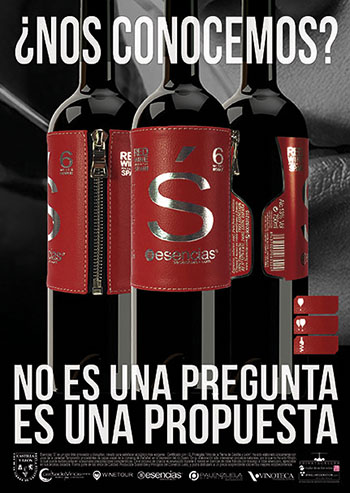
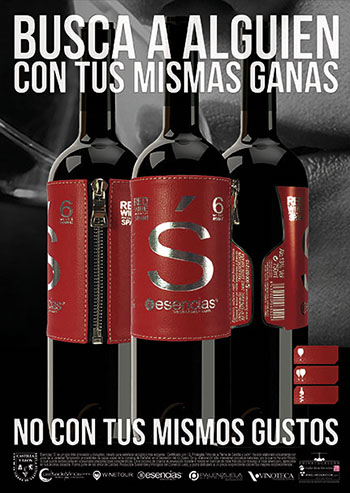
Data sheet.
Château d'Esclans 3 L.
Rosé wine. Château d'Esclans. A.O.C. Côtes de Provence. France. Grenache Tintorera, Cinsault. Jéroboam Bottle-Double Magnum. 3 L..
| Variety | |
| Country of origin |  France. France. |
| Appellation of origin |  A.O.C. Côtes de Provence. A.O.C. Côtes de Provence. |
| Vintage / Harvest | Currently marketed by the producer. |
| Format | Jéroboam Bottle-Double Magnum. |
| Capacity | 3 L. |
| Alcohol content | 12.5% Vol. |
| Visual tasting note | Crystalline, Evolution to tile color, Sparkling. |
| Olfactory tasting note | Tender almonds, Raspberry marmalade, Vanillas. |
| Tasting note | Dry, Very silky, Some warmth. |
| Recommended pairing | Rice with mushrooms, Nuts, Pisto manchego, Spaghetti carbonara. |
| Consumption temperature | 4ºC - 10ºC. |
| Special Format | Magnum Bottle. |
| Typology | Rosé wine. A.O.C. Côtes de Provence. |
| Producer | Château d'Esclans. |
| Weight | 4.000 gr. (4,0 Kg.). |
| EAN | 3760167974732 |
| Product reference | WAN4510064 |
| Actual price | 173,95 € |
| Minimum order quantity | 1 Unit. |
| Shipping deadline |  Spain: Free Shipping. Spain: Free Shipping. Delivery term: Information and prices. |
| Please keep in mind | The information provided and referred to the product features and details has been provided by the expert, manufacturer or producer or published on the official sites. In no case can it be considered as assessment made by our team, unless expressly stated otherwise. We suggest you to refer to the comments and reviews posted by our customers and users to expand and contrast this information. |
| Misreading | Our team provides this information and details in ESPAÑOL language. If you browse in another language note that the information contained may have been translated from the original language through an automated real-time process that has not been supervised by our human team. In case of doubt, misunderstanding or misreading about the content of this information you should refer to the original version of this page or contact our customer service team. |
| Product image | The product image or its label is only relevant for graphic purposes, so it may not match the identification of the vintage or other features and details of the product for sale. This product is provided in the conditions and format in which it is marketed at the current time. This product is not identified or supplied in a specific vintage. The product image and label may not match the vintage identification or other characteristics and details of the product for sale. |
| Country of origin | Spain. This product is shipped from Spain. |
| (UE)401/2010 Certification | Appellation d'Origine Contrôlée (A.O.C.) A.O.C. Côtes de Provence. |
| Production region | The production region of A.O.C. Côtes de Provence is located in La región de Provence. |
| Storage position | Lateral position, horizontal bottle. |
| Storage temperature | Store at a constant temperature between 10-17ºC. Humidity should be constant around 60-80%. |
| Recommendations | Keep preferably away from light. |
| Accessories | This product is provided in the conditions and format in which it is marketed at the current time. In cases where the product includes an additional packaging, box and/or case, These accessories will be included in the shipment as long as they comply with the dimensions of the special packaging adapted and approved for the transport of beverages. In general, the images of the products that we publish on our website are only relevant for graphic purposes. The images do not show other accessories such as additional packaging (box, case, etc.) or promotional elements that may occasionally be included by the manufacturer along with the product. If you wish, we can inform you about the additional packaging, elements and accessories included with the product at the current time. |
| Legal Notice | It is against the law to sell or supply alcohol to, or to obtain alcohol on behalf of a person under the age of 18 years. If you are not more than 18 years old, you must leave this website. |
| Consumption | It is recommended to drink in moderation and demonstrate a responsible consumption of alcoholic beverages. |
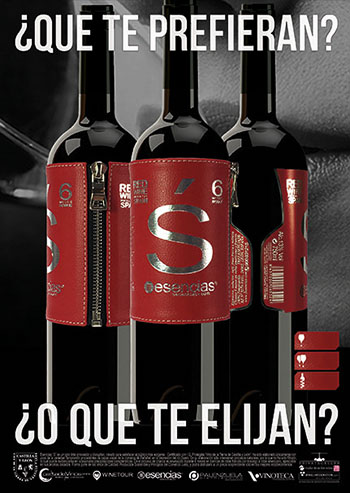
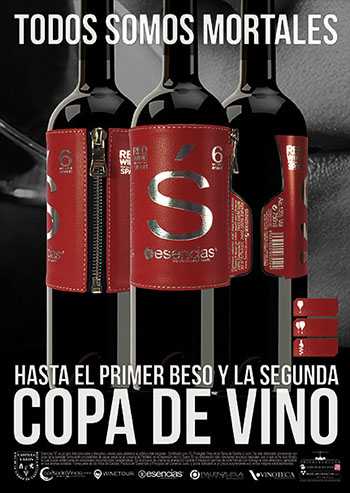
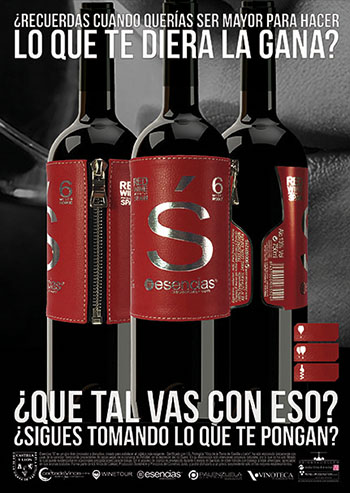
 Italy
Italy Argentina
Argentina United States
United States Australia
Australia Portugal
Portugal Chile
Chile New Zealand
New Zealand South Africa
South Africa



 Germany
Germany Austria
Austria



 Tokaj-Hegyalja
Tokaj-Hegyalja





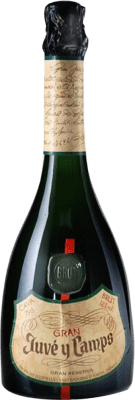
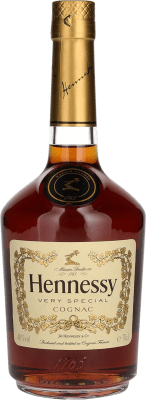


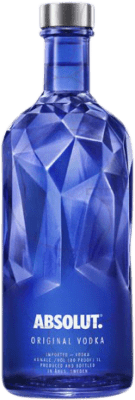






















 Language English
Language English





































